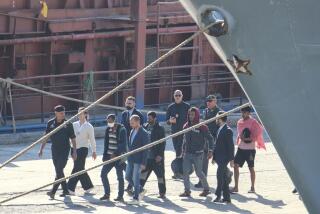Italy struggles with an influx of migrants trying to find their way
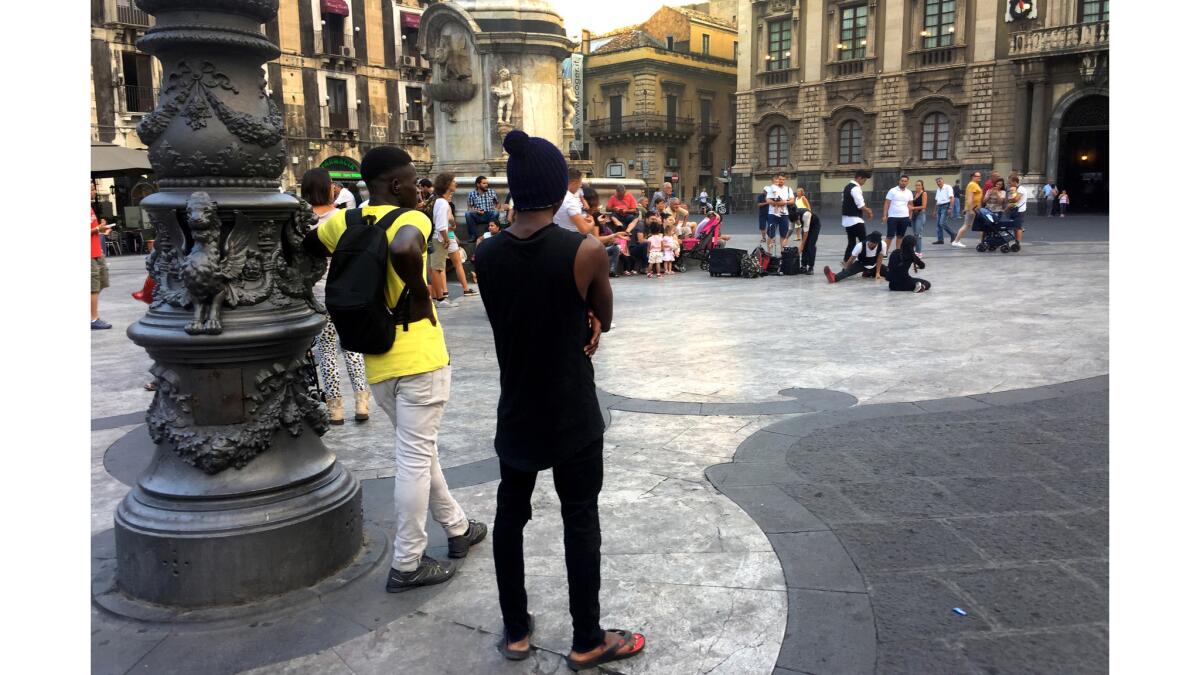
- Share via
Reporting from Catania, Italy — The teenager, after traveling alone from Nigeria to Italy, was living in a migrant reception center in the city of Catania waiting for word about her request for asylum.
Jennifer Oyakhilome said she arrived more than a year ago, having fled poverty and violence in her home country. She felt both apprehensive and hopeful about the future.
“I can work in a restaurant or do cleaning,” Oyakhilome, 18, said in a recent interview. “At least, I’m here and I feel safe.”
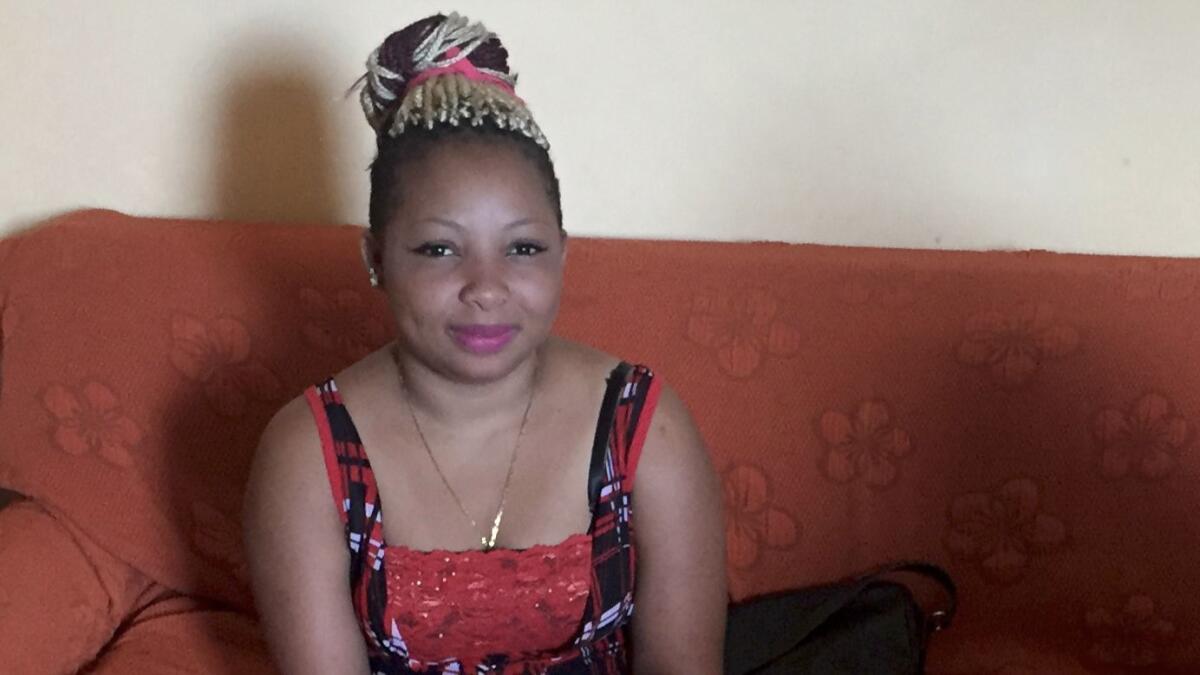
In the year and four months since the European Union reached an agreement with Turkey stemming migration across the Aegean Sea into Greece, the central Mediterranean crossing from Libya to Italy has become the main path to Europe for migrants and refugees like Oyakhilome from Africa, the Middle East and elsewhere.
Italy has seen more than 93,000 migrants arrive so far this year, a 17% increase over the same period last year, according to the International Organization for Migration.
Italian officials, in frustration over how European Union countries handle the burden of accommodating migrants and refugees, recently threatened to close their ports to rescue ships operated by humanitarian groups that weren’t flying the Italian flag unless they received more help from other EU members.
In Catania, one of the main entry points, residents, officials and aid workers have shown considerable compassion for the new arrivals. But fear is gaining ground that the influx will continue unabated, further straining the overburdened system that receives them.
The conflicted emotions generated by the situation reflect a wider sentiment that Italy has reached a saturation point and that steps must be taken to stem the flow of migrants. A recent national opinion poll showed 67% of the respondents believed migrants should be blocked from entering Italy or immediately repatriated.
“The city is a bit stunned,” said Carmela Campione, a Catania official who oversees immigration issues, in a recent interview.
The day after Campione’s comment 1,400 more immigrants arrived at the city’s port, carried there by an Italian coast guard ship that had rescued them at sea.
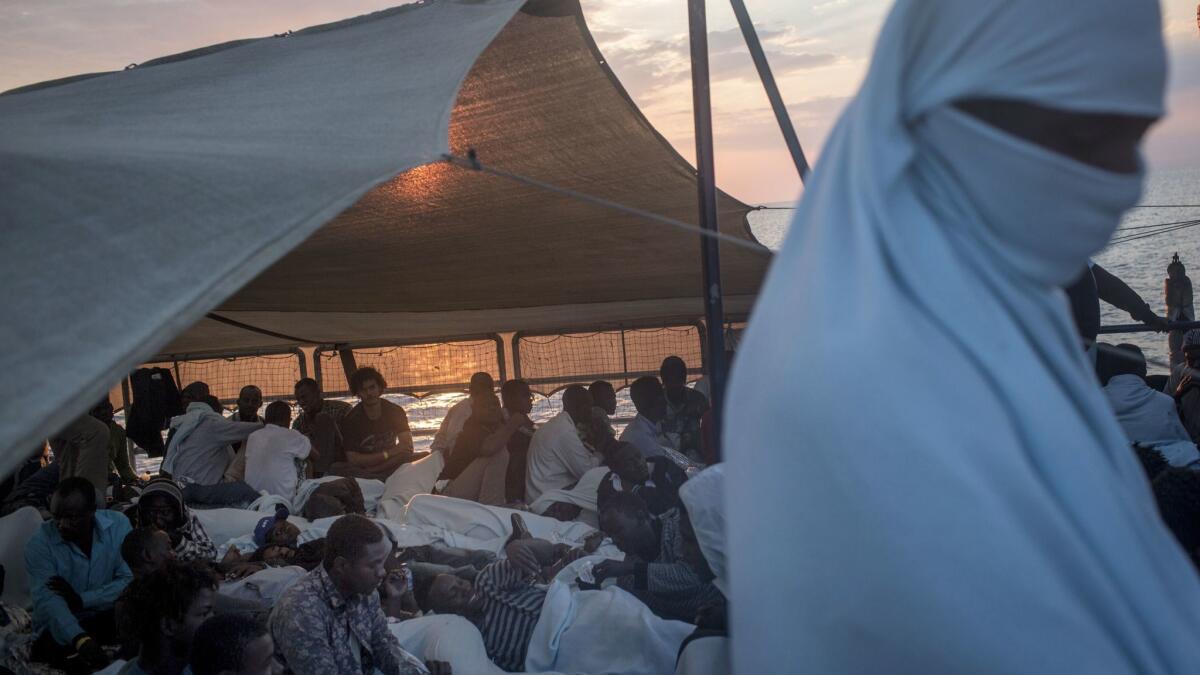
The passage carries many dangers. Aid groups report widespread abuses in Libyan detention centers, where many of the immigrants find themselves after completing their land crossings. Then, once having secured a Mediterranean crossing with traffickers, they are crowded into boats, often without enough fuel to reach Italy, and are picked up by ships in international waters.
More than 2,200 died or are missing at sea this year, according to the International Organization for Migration, with others rescued by Italian coast guard ships, vessels in Europe’s Frontex border control, merchant ships and rescue boats operated by non-governmental organizations.
The relief migrants feel at reaching a haven in Italy can be clouded with uncertainty and isolation.
In Catania, many migrants take Italian lessons, attend vocational training or work temporary jobs set up by the reception centers where they live while waiting for answers to their asylum requests, a process that can take longer than a year.
In the evening, they can be seen walking through the city center in groups of twos or threes, or gathering at dusk on the steps of Catania’s grand Baroque cathedral. There, they watch residents and tourists strolling through the plaza or sitting at outdoor cafes enjoying a “granita,” Catania’s sweet icy specialty made with almonds or pistachios harvested from nearby Mount Etna’s rich volcanic slopes.
At an apartment building, migrants who survived perilous passages from their homelands tend to a garden lush with eggplants, peppers, tomatoes and zucchini.
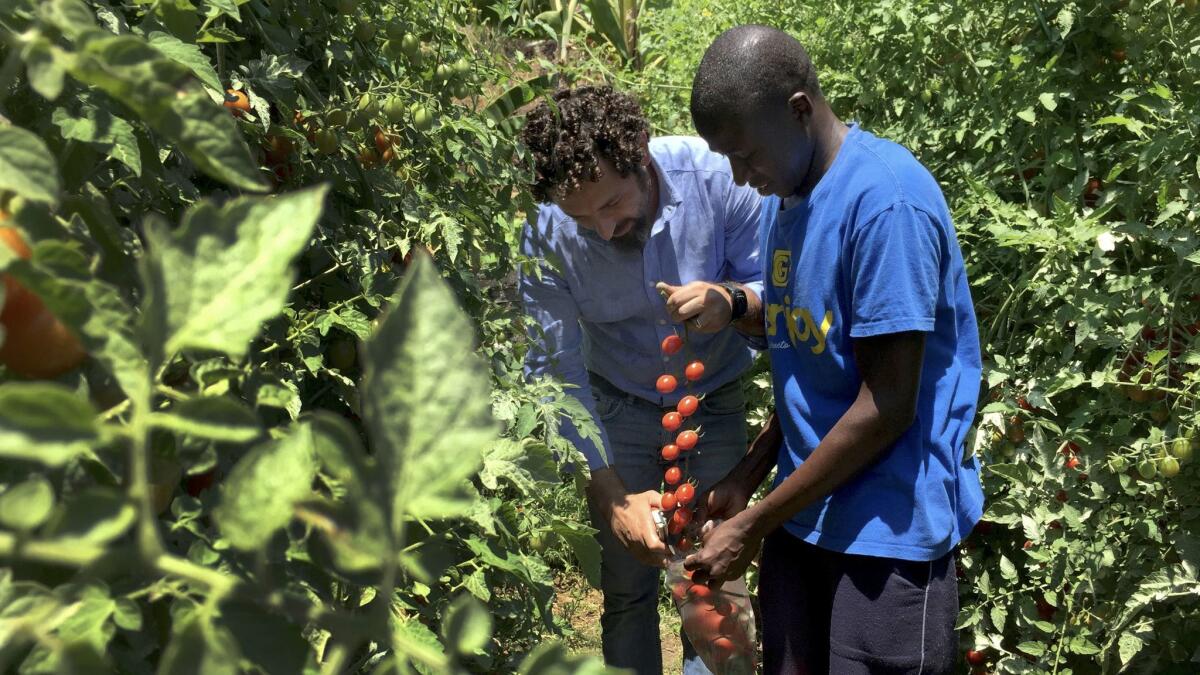
Isa Sankano, 23, of Gambia, said the garden at the building offers a respite as he too waits for the outcome of his asylum request.
Sankano said his father died when he was young and life was difficult for him and his mother so he set off to Europe. He was held for a year in a detention center in Libya, often sent to work jobs for no pay. He arranged passage to Italy in March 2016 with the help of a man whose house he cleaned.
He is content now to harvest tomatoes, trim a flourishing patch of basil and check the chicken coop for eggs. He is grateful for the arrangement at the building, which is operated by the private Consorzio Il Nodo company with government funds.
“I am happy that I’m here,” Sankano said.
Signs of empathy for the migrants can be found in many places around Catania. In the main cemetery, the city’s government erected a memorial where bodies of unidentified migrants who died at sea are buried.
At the Il Nodo residence, colorful blankets cover beds and walls sport posters with inspirational quotes.
And when supporters of the far-right, anti-immigrant Identitarian movement said they planned to use Catania’s port to launch a “Defend Europe” mission, sending a chartered boat to the Mediterranean to monitor the ships of aid groups they accused of colluding with traffickers, the city’s mayor, Enzo Bianco, said no.
“The people on this boat are not welcome and I will certainly be asking the authorities to stop, for reasons of public safety, its docking at our port,” the mayor said in a statement issued by his office Friday. It was unclear when the boat was expected to arrive.
“Catania, in these years, has received thousands of desperate people fleeing war and hunger, people saved from death by European ships in the Mediterranean who often have lost one or more loved ones crossing the sea,” Bianco said. “To talk of the ‘defense of Europe’ is demagogic and self-serving.”
But along with the outward show of care is worry over how Catania, and Italy as a whole, will absorb the waves of immigrants that continue to arrive on its shores.
Andrea Germano, 52, a lifelong resident of Catania who manages residential properties he owns, said he knows that many migrants suffered abuses, having heard stories of people covered in cigarette burns inflicted while detained in Libya.
“So yes, we have to help but we can’t take them all,” he said.
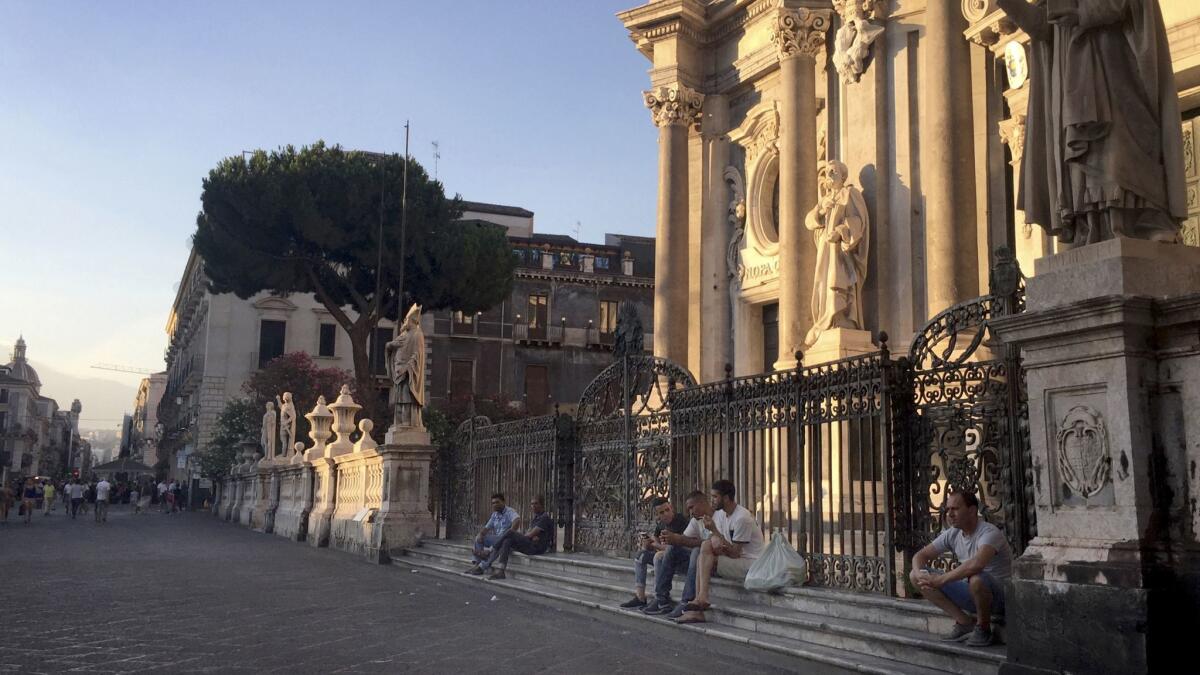
Included in Catania’s response to migrants is the role of aid workers involved in rescue missions. During a recent afternoon at the Catania office of Doctors Without Borders, employees finalized details for the departure of Prudence, one of its two rescue boats, back to the Mediterranean search area. Days earlier, the boat had delivered 935 immigrants to the port of Salerno and was returning to sea to rescue more.
Michele Trainiti, coordinator of the organization’s search and rescue projects in Italy, said its work continued even as they defended themselves from allegations that rescue groups colluded with traffickers to locate immigrants at sea.
He said he was disturbed that the Italian government had begun working with the Libyan coast guard to encourage the return of migrants to Libya in an effort to reduce the number of migrants entering Italy. Trainiti said migrants rescued by the organization recounted horrific tales of rape, torture and forced labor while in lawless Libya.
“People really don’t understand the magnitude of the violence happening in Libya,” he said.
Trainiti said aid workers aboard the Prudence heard a particularly harrowing story from a Nigerian couple among its most recent rescues. According to their account, which could not be verified, Libyan kidnappers became angry when the couple were unable to pay ransom.
“First they raped the wife in front of the husband and then they killed their 2-year-old son in front of them,” Trainiti said. “They are completely broken.”
Haller is a special correspondent.
ALSO
A small town in Italy was losing population. Now Syrian refugees are key to its survival
Europe’s migrant crisis threatens to overwhelm Italy, even as flows to Greece dry up
Foreigners buy record number of U.S. homes despite fears of immigration crackdown
More to Read
Sign up for Essential California
The most important California stories and recommendations in your inbox every morning.
You may occasionally receive promotional content from the Los Angeles Times.


